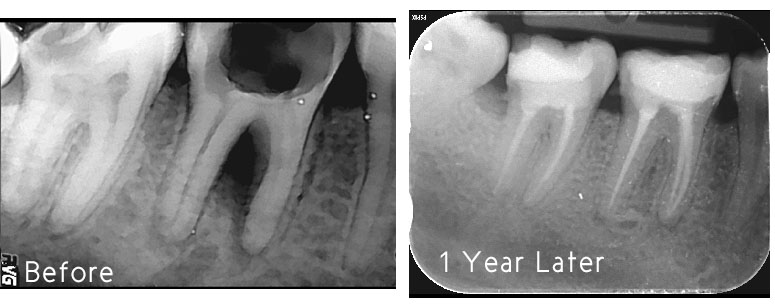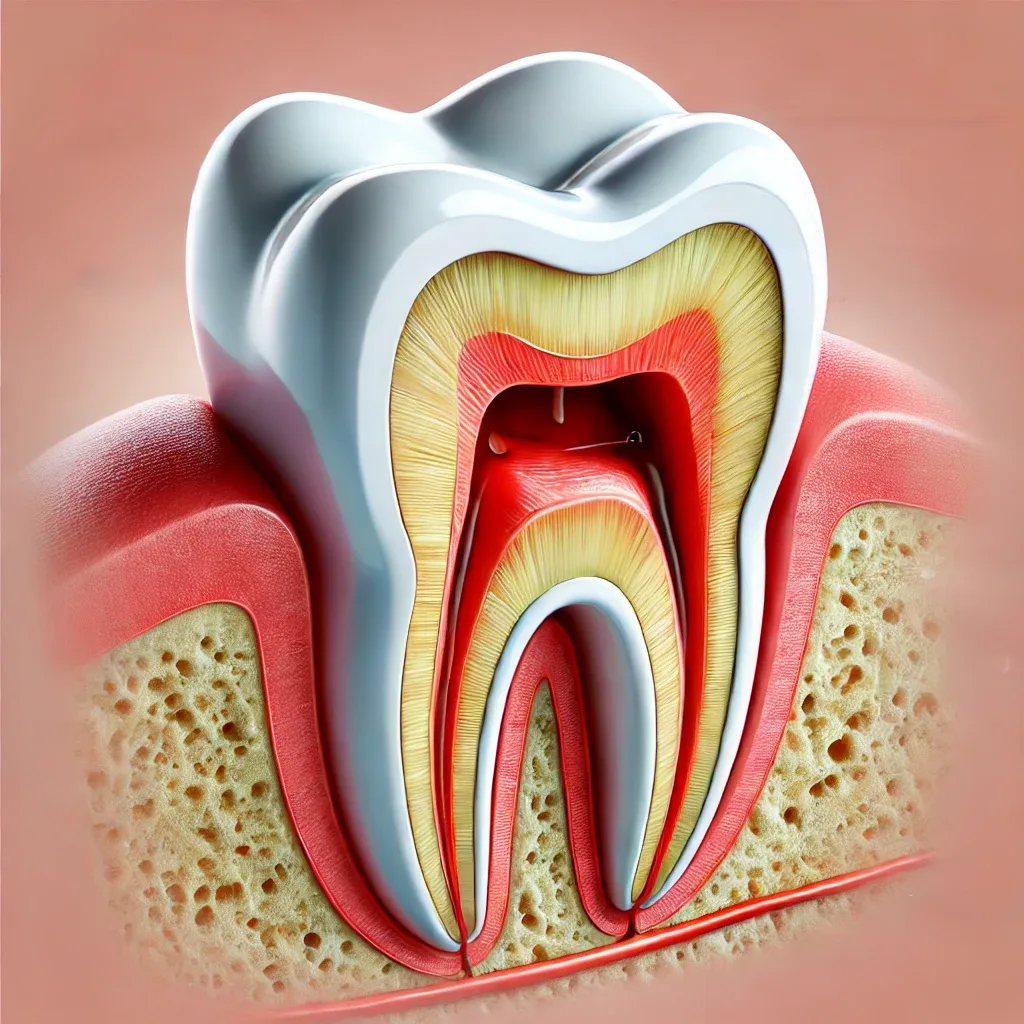
Caption: Before and after root canal treatment, image courtesy of Vallance Dental Centre.
A root canal treatment might sound daunting, especially if it’s your first time. This detailed guide demystifies the root canal treatment, also known as endodontic treatment, in a simple and understandable way.
What is a Root Canal Treatment?
Root canal treatment, or endodontic treatment, is a specialised dental procedure designed to treat infection within the intricate structure at the centre of a tooth known as the root canal system. The root canal system becomes infected when bacteria residing in the mouth invades the tooth, often due to tooth damage, decay, or fillings.
According to the National Health Service (NHS) UK, root canal treatment is highly effective and it’s a brilliant way to save your natural tooth, preventing extraction.
How is a Root Canal Treatment Done?
In order to get the best prognosis, a root canal treatment is best performed by an endodontist or a dentist with a special interest in root canal treatment. These dentists have additional training in treating the tooth pulp and roots and so can provide the best outcomes. The process is meticulously carried out in several stages:

- Diagnosis and X-ray: An X-ray is taken to study the root canals, check for infections in the surrounding bone and to plan the treatment.
- Anesthesia: A local anesthesia is administered to numb the area, ensuring that the procedure is comfortable and pain-free.
- Pulpectomy: A tiny hole is created in the tooth to reach the root canals. The infected or inflamed pulp is carefully removed, and the root canals are disinfected using special tools.
- Filling and Sealing: The now clean root canals are filled and sealed with a biocompatible material, often gutta-percha. The tooth is temporarily sealed to prevent reinfection.
- Restoration: In the final visit, the temporary filling is removed, and the tooth is restored with a crown or filling, providing a natural appearance and full functionality.
Is Root Canal Treatment Painful?
One of the most common myths surrounding root canal treatment is that it’s painful. This misconception often arises from outdated stories before the advent of modern anaesthetics and techniques. With today’s advanced technology and anaesthesia, root canal treatment should be as comfortable as getting a filling.
Related Reading: Is Root Canal Treatment Painful
How Long Will a Root Canal Last?
With proper care and regular dental checkups, a successfully treated tooth can survive an average of 10-15 years. However, this depends upon the situation at the start of your root canal treatment. The more infection that is present, the worse the long term prognosis. Your dentist can provide more specific timelines based on your individual situation. However, the longevity of the final restoration such as a crown or filling can vary.
Remember that a tooth without a nerve can still develop cavities or gum disease. Therefore, maintaining good oral hygiene is crucial even after the treatment.
Meet Our Expert – Dr. Jonathan Skidmore
At Vallance Dental Centre, we’re fortunate to have the expertise of Dr. Jonathan Skidmore, a highly skilled dentist with a special interest and a Masters qualification in endodontic treatment. Dr. Skidmore’s extensive knowledge and experience in this field enable him to provide root canal treatments that are as comfortable and pain-free as possible. He leverages the latest techniques and technologies, ensuring that our patients receive the best possible care during their endodontic treatments.

Dr Jonathan Skidmore carrying out a root canal treatment under microscope magnification
Contact us
At Vallance Dental Centre, we are dedicated to providing the highest quality of care and ensuring you fully understand your dental health. If you have any questions about root canal treatment in Manchester or need information on our dental charges, our friendly team is ready to assist.
Don’t let misconceptions or uncertainty deter you from achieving optimal dental health. Contact us by email or telephone to schedule an appointment. Understanding your treatment options is the first step to a healthier


